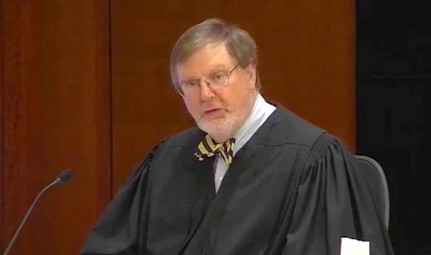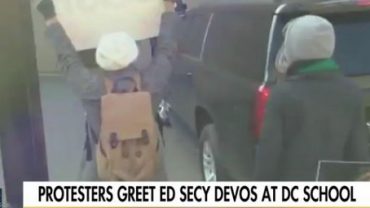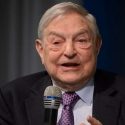Judge Who Blocked Trump Action Has Activist Past
Robart made a point of saying ‘Black Lives Matter’ in dispute with Seattle police, does pro bono work for refugees.
U.S. District Court Judge James Robart, who Friday temporarily curtailed President Donald Trump’s refugee executive order, has something of an activist history on the bench.
When Robart ruled in favor of Washington state’s attorney generals Friday, he claimed that Trump’s order temporarily banning U.S. entry to citizens from seven terrorism-compromised nations was not “rationally based” and has “harmed” the states and “inflicted” damage upon them. Writing that “the court concludes that the circumstances brought before it today are such that it must intervene to fulfill its constitutional role in our tripartite government,” Robart issued a decision hailed by the mainstream media and liberal activists.
“Forty-one percent of the casualties, 20 percent people of the population. Black lives matter.”
“Judge Robart’s decision, effective immediately, effective now, puts a halt to President Trump’s unconstitutional and unlawful executive order. It puts a stop to it immediately, nationwide,” Washington State Attorney General Bob Ferguson told reporters, according to Politico. “What the judge announced today was nationwide; the president’s executive order does not apply.”

Robart, who was nominated to his position by former President George W. Bush in 2004, said the phrase “black lives matter”
During a court hearing for a case in August 2016 concerning the Seattle Police Departments potential use of excessive force in a racially charged situation.
The Obama administration filed the lawsuit after an investigation concluded the SPD “had engaged in a pattern or practice of excessive force” that “could have a disparate impact on minority communities.”
During a court hearing, Robart became “deeply personal,” as the Seattle Times noted, when he pointed to FBI statistics.
“The importance, to me, of this issue is best demonstrated by the news, which was much reported again today,” Robart said with emotion. “According to FBI statistics, police shootings resulting in deaths involve 41 percent black people despite being only 20 percent of the population living in those cities. Forty-one percent of the casualties, 20 percent of the population. Black lives matter.”
Robert ultimately ruled against the SPD. While analyzing Robart’s decision, the police blog Blue Lives Matter wrote, “The proposed changes will have a major effect on all union members, including discipline being investigated and determined by non-law enforcement investigators. The changes make it faster and easier to discipline an officer if the public believes that the officer was wrong, whether or not that was actually the case.”
Prior to Robart’s “black lives matter” statement, Sen. Orrin Hatch (R-Utah) praised him for his dedication to pro bono legal work representing refugees.
“[Robart] has been active in the representation of the disadvantaged through his work with Evergreen Legal Services and the independent representation of Southeast Asian refugees,” Hatch said during Robart’s confirmation hearing, according to CNN.
In his own words during his confirmation hearing, Robart described how he would approach the cases he considered.
“I was introduced to people who in many times felt that the legal system was stacked against them or was unfair,” Robard said. “And one of the things, I think, that my time there helped accomplish was to show them that the legal system was set up for their benefit and that it could be, if properly used, an opportunity for them to seek redress if they had been wronged.”
And now Robart appears to have taken his sympathy with refugees to the next level by halting Trump’s migration executive order and temporarily thwarting the president’s action designed to boost national security and put the safety of American citizens first.
“The opinion of this so-called judge, which essentially takes law-enforcement away from our country, is ridiculous and will be overturned!” the president tweeted Saturday morning. “When a country is no longer able to say who can, and who cannot , come in & out, especially for reasons of safety &.security - big trouble!”





